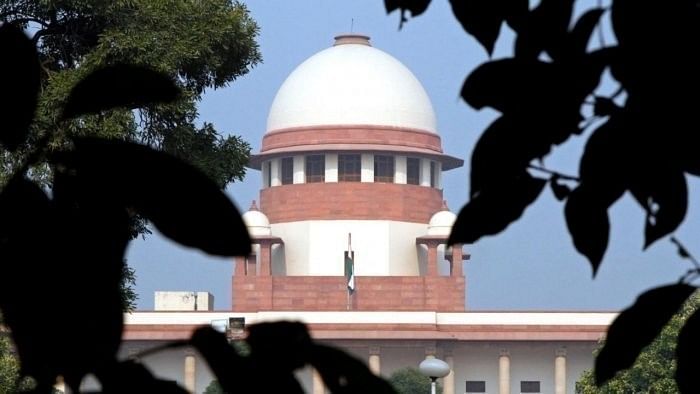
The Supreme Court of India.
Credit: PTI File Photo
On August 9, the Supreme Court of India struck a blow for the equalities guaranteed to all citizens of India by partially staying an order passed by an educational institution in Maharashtra banning certain sartorial accessories. It allowed N G Acharya and D K Marathe College to proscribe the niqab, burqa and stole, but allowed badges, caps and the hijab. The fine distinctions between the hijab, niqab, and burqa need not detain us here, nor the design of the stole. The important thing is that the apex court bench hearing the appeal made it clear that it was batting for equality and personal choice. “Will you stop a student wearing tilak from entering the college?” Justice Sanjiv Khanna said. “Will you stop a student’s entry if she wears a bindi? Should it not be left to the girl to decide what she wants to wear?”
We should recall that the Indian Constitution guarantees by way of fundamental rights the individual’s right to life and privacy, which in turn covers individual choices in diet and sartorial habits, with reasonable restrictions. It also guarantees equality before the law, while prohibiting discrimination on grounds of religion, race, caste, sex, and place of birth. In the past decade, governments run by the Bharatiya Janata Party (BJP) at the Centre and in various states have made concerted efforts to attenuate basic liberties and equalities in the matter of diet (ban on beef) and sartorial styles. A very consequential attempt to police sartorial practices in a discriminatory fashion occurred in 2022 when the Karnataka government run by the BJP banned the wearing of the hijab in educational institutions. The Karnataka High Court upheld the ban later that year. Later, a Supreme Court bench issued a split verdict, and the case is scheduled to be heard by a larger bench.
Earlier in the week in which the Supreme Court stayed the Maharashtra sartorial ban, about half a dozen students turned up at a school in Uttar Pradesh’s Kanpur district wearing the hijab in protest against a similar ban. They had to go home after being denied entry. The authorities said wearing the hijab was against the college dress code, which, of course, begs the court’s probing questions. The matter remains unresolved, but given that the ban is discriminatory and affects the education of young people, it is for the school to back down or for the judiciary to make it do so.